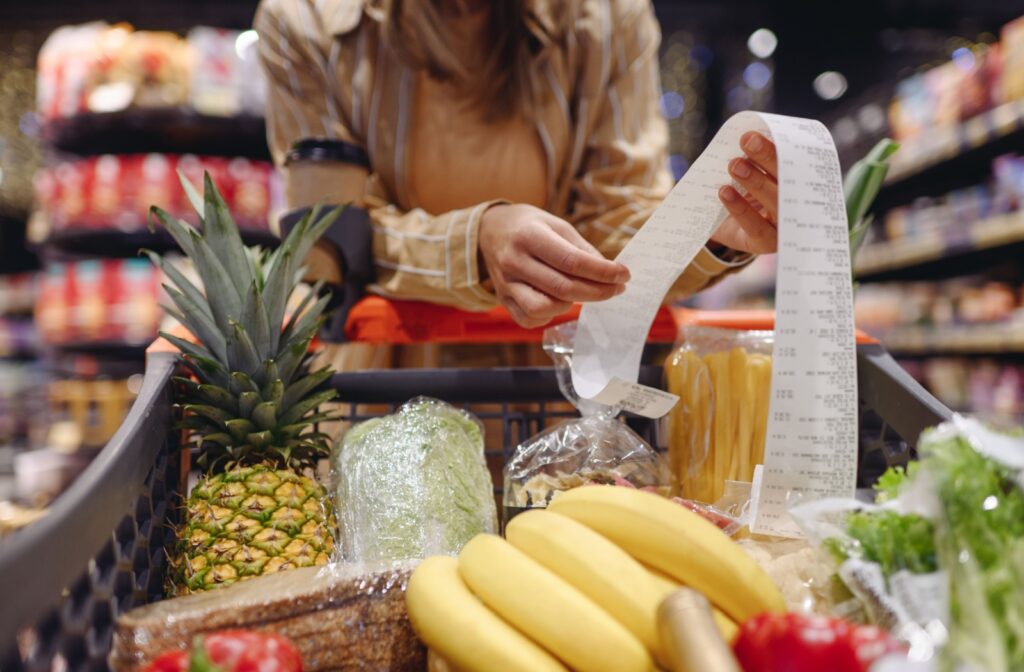In Canada, the rising cost of food has become an increasingly pressing issue, especially for individuals and families who are already living on limited resources. Food inflation, combined with the ongoing challenges of precarious housing and homelessness, has created significant barriers to accessing nutritious meals.
At Regeneration Outreach in Brampton, we are committed to helping those who are experiencing homelessness, food insecurity, and extreme poverty, and we recognize that every person’s journey is unique. In this post, we will explore ways to reduce your grocery bill, such as meal planning, buying in bulk, and sticking to store perimeters, while also shedding light on how food inflation affects the most vulnerable in our society.
The Impact of Food Inflation in Canada
In 2024, Canada’s food inflation rate increased by 2.8% overall, with some grocery staples like meat, dairy, and produce seeing price hikes of up to 10% in certain areas. This rise has made it more difficult for many Canadians, especially those already struggling financially, to afford essential food items.
Looking ahead, Canada’s Food Price Report 2025 predicts that Canadian families will spend up to $801 more on food compared to last year, while 8.7 million Canadians are already living in food-insecure households. These rising costs are creating even greater challenges for vulnerable people across the country.
The Impact on Vulnerable Populations
For the homeless and those who are precariously housed, food insecurity is an ongoing crisis. Last year, Food Banks Canada’s HungerCount report revealed that over 2 million Canadians visited food banks monthly, a record high, with one-third of those clients being children. Additionally, racialized groups and Indigenous people are at a higher risk of experiencing food insecurity due to systemic inequalities, geographic isolation, and economic disparities.
As food costs climb, many of the most vulnerable individuals in our society are forced to make difficult choices between purchasing food and meeting other basic needs like shelter, healthcare, and transportation. This is why it’s crucial for all of us to find ways to reduce our grocery bills, not only for ourselves but also in support of the broader community.
How Can I Lower My Grocery Bill?
There are several strategies you can use to reduce your grocery bill without sacrificing the quality of your meals. Here are 10 practical tips that can help you save money while still providing nourishing food for yourself and your family.
- Make a shopping list and meal plan: Plan meals in advance and create a detailed shopping list to avoid impulse purchases. Focus on items that are on sale or in season for the best value.
- Avoid buying hygiene products: Grocery stores often markup non-food items. Buy toiletries and cleaning supplies at discount stores or pharmacies.
- Buy generic products: Generic products are often just as good as name brands but cheaper. Switch to store brands for staples like pasta, rice, canned goods, and dairy to save money.
- Stick to the store’s perimeter: Consider your primary products that are usually along the outer edges of the store where fresh produce, meat, dairy, and bread are located. Avoid the middle aisles with expensive, processed foods.
- Shop during the quietest days of the week: Shops are less crowded and may have better sales on quieter days, like Tuesday or Wednesday. Shopping during off-peak times can help you save.
- Shop alone if you can: Shopping alone helps avoid distractions and impulse buys, preventing you from picking up extra items you don’t need.
- Pay with a grocery rewards card: Many grocery stores offer loyalty programs that allow you to earn points or discounts with every purchase. Signing up for these programs can result in meaningful savings over time.
- Buy items in bulk and freeze the extras: Buy bulk items like grains and pasta to reduce the cost per unit. Freeze extra meat or produce to avoid paying more for smaller portions.
- Buy produce that is in season: In-season produce is cheaper, more flavorful, and nutritious. You can also freeze or can extras to enjoy year-round.
- Shop on a full stomach: Shopping while hungry can lead to impulse purchases, especially snacks and non-essential items. Eat before shopping to stick to your list and avoid buying unnecessary items.

How Much Should Groceries Cost Per Month in Canada?
The average Canadian household spends approximately $1,227 per month on groceries, depending on the size of the family and their dietary needs. For a single person, this can be closer to $300 to $400 per month.
However, the cost can be much higher for larger families or households with special dietary requirements, such as those who follow vegetarian, gluten-free, or organic diets. The rising cost of food in Canada means that these amounts are likely to increase, putting additional strain on those living on lower incomes.
The Food Insecurity Vulnerability of Racialized Groups and Indigenous People
Food insecurity disproportionately affects racialized groups and Indigenous people. In many Indigenous communities, particularly those in remote northern regions, grocery prices are up to three times higher than in urban centers due to the cost of transportation and supply chain challenges. For racialized groups in cities, food insecurity is often compounded by discrimination, underemployment, and lack of access to affordable housing.
In Brampton, many of our neighbors face these systemic barriers every day. To truly support those experiencing homelessness and food insecurity, we must acknowledge the link between food insecurity and broader social issues like racial inequality and limited access to nutritious food.
Support Regeneration Marketplace and Make a Difference Today
While reducing your own grocery bill is important, it’s equally essential to support the most vulnerable in our community. The Regeneration Outreach Marketplace in Brampton provides quality food and household items to those in need, offering not just groceries, but a welcoming community. Your donation can make a real difference.
We gratefully accept food and goods Tuesday through Saturday, helping hundreds of families and individuals each week. Consider donating today to support your neighbors and help us continue this important work!



